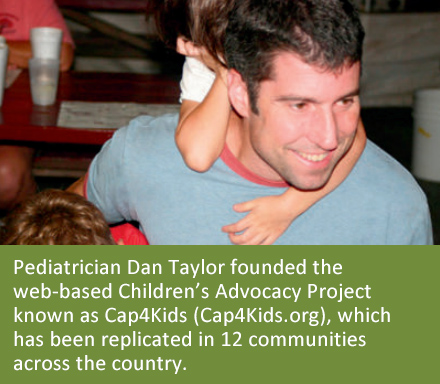Begin With the Children
Recently I was invited to be a panelist for "Telling Your Health Story," an event sponsored by the Philadelphia Inquirer for physicians, social workers and health advocates who were interested in medical writing and writing for change. The panelists would share their knowledge and their experiences with writing health stories, so potential authors in the audience could learn about different ways writers approach their work.

I'm always happy to talk about writing, but what sealed my participation was the title of my panel, "Why We Do This: Writing for Impact." For me, "why" is the easy part: My motivation for writing is almost always to advocate for the children and families I serve at St. Christopher's Hospital for Children in North Philadelphia.
There is no shortage of topics. Life expectancy in the neighborhoods surrounding the hospital is up to 20 years less than in more affluent areas of the city. How do the epidemics of opioids and gun violence affect a child's health trajectory? What about suicide or incarceration of family members? What is the most serious non-infectious disease in childhood? (Answer: poverty)
My stories typically include a family I know and a struggle they are facing that can affect that child, that family, that community's health. In my process, I also offer advice for readers to get involved in these issues, to make a more just and equitable city for all children no matter their zip code.
Doctor Detective
Even the Medical Mystery stories I write tend to have an advocacy bent to them: cannabinoid hyperemesis syndrome, which pointed to chronic cannabis use in our teenage patient; pollakiuria, most commonly caused by stress; opioid ingestion leading to lethargy and slowed breathing in a 10-month-old (that was in 2016, and the tip of the iceberg as we now know).
Part of training medical students and residents is teaching them to ask good questions. Words matter and so do attitudes. I ask my young patients' families in a conversational way if they are staying at home or working, or going to school. This inclusive question can give me insight into family dynamics, income and childcare.
How do the epidemics of opioids and gun violence affect a child's health trajectory?
Make Your Point
I also am fortunate on occasion to have an op-ed published. The language I use is direct. It may sound dramatic. An opinion piece I wrote was headlined "My patients are kids caught in the middle of the opioid crisis. Who speaks for them?" But the drama lies in the truth, not in creative license. My views (which are my own, as the Inquirer states) are based not only on my experiences, but on research that I cite and on knowledge of current and emerging policy and resources.
A Shared Voice
Writing has helped me process many of the traumas that my families face and share with me on a daily basis. Writing these stories helps give a voice to a community that is sometimes voiceless. Lastly, writing for change helps me, personally, to prevent burnout and secondary trauma. I believe that anyone with the right motivation and the right story can find the right voice to be heard, to make a change.
— Daniel Taylor, DO
Associate Professor of Pediatrics
Editor's Note: Dr. Taylor is the director of community pediatrics and child advocacy at St. Christopher's Hospital for Children. Read his work at dtaylor4kids.wordpress.com.
Back to Top